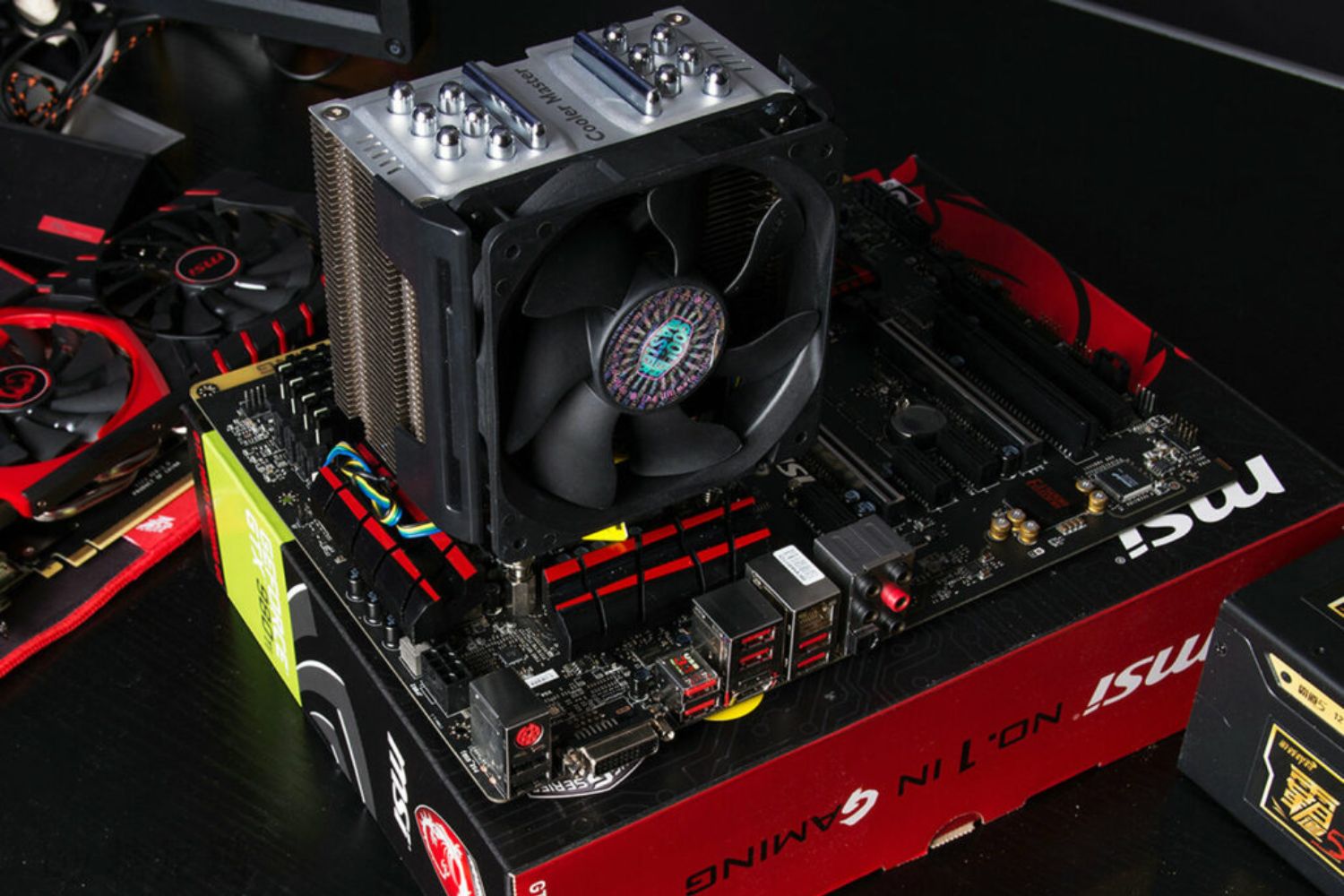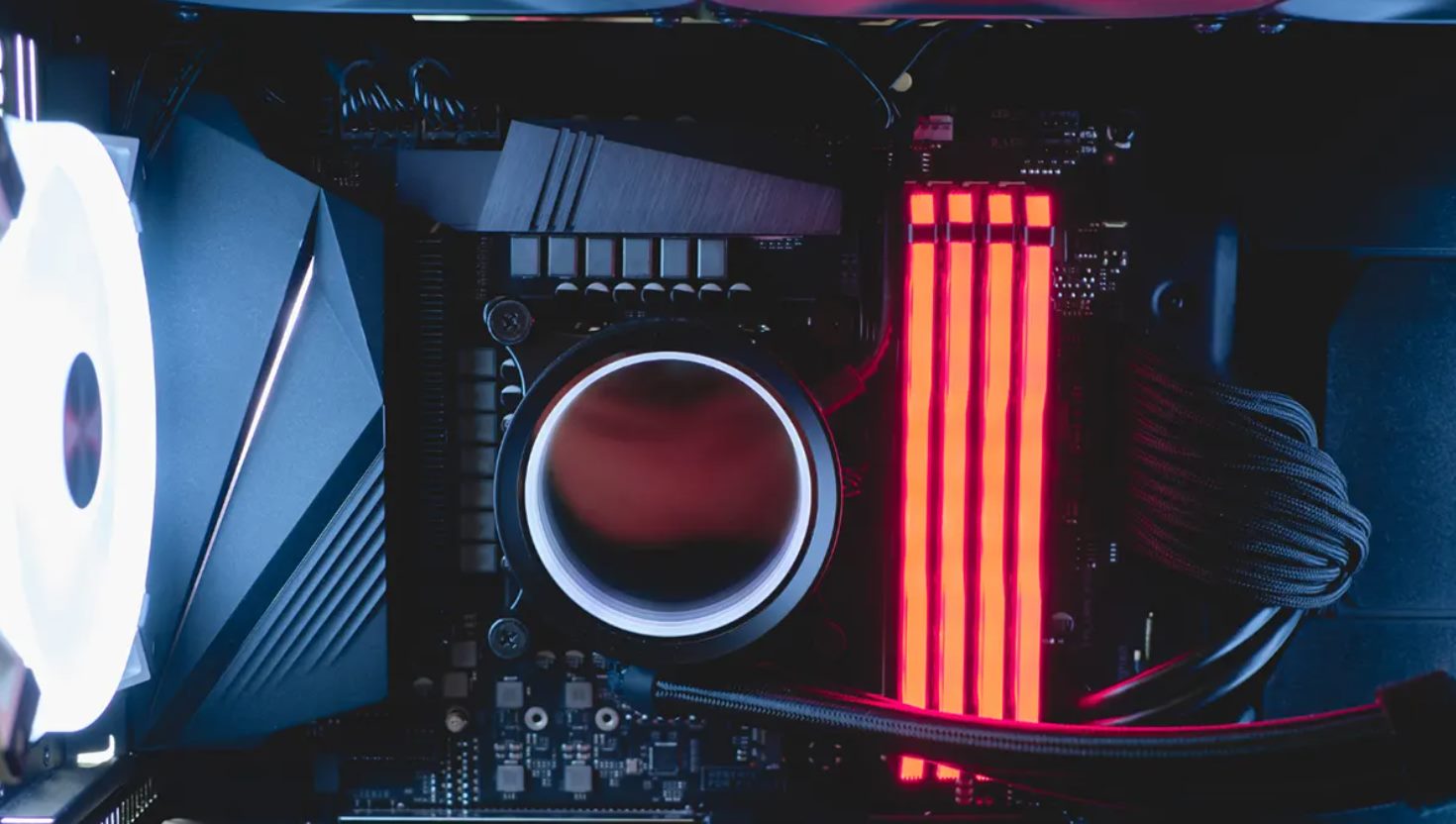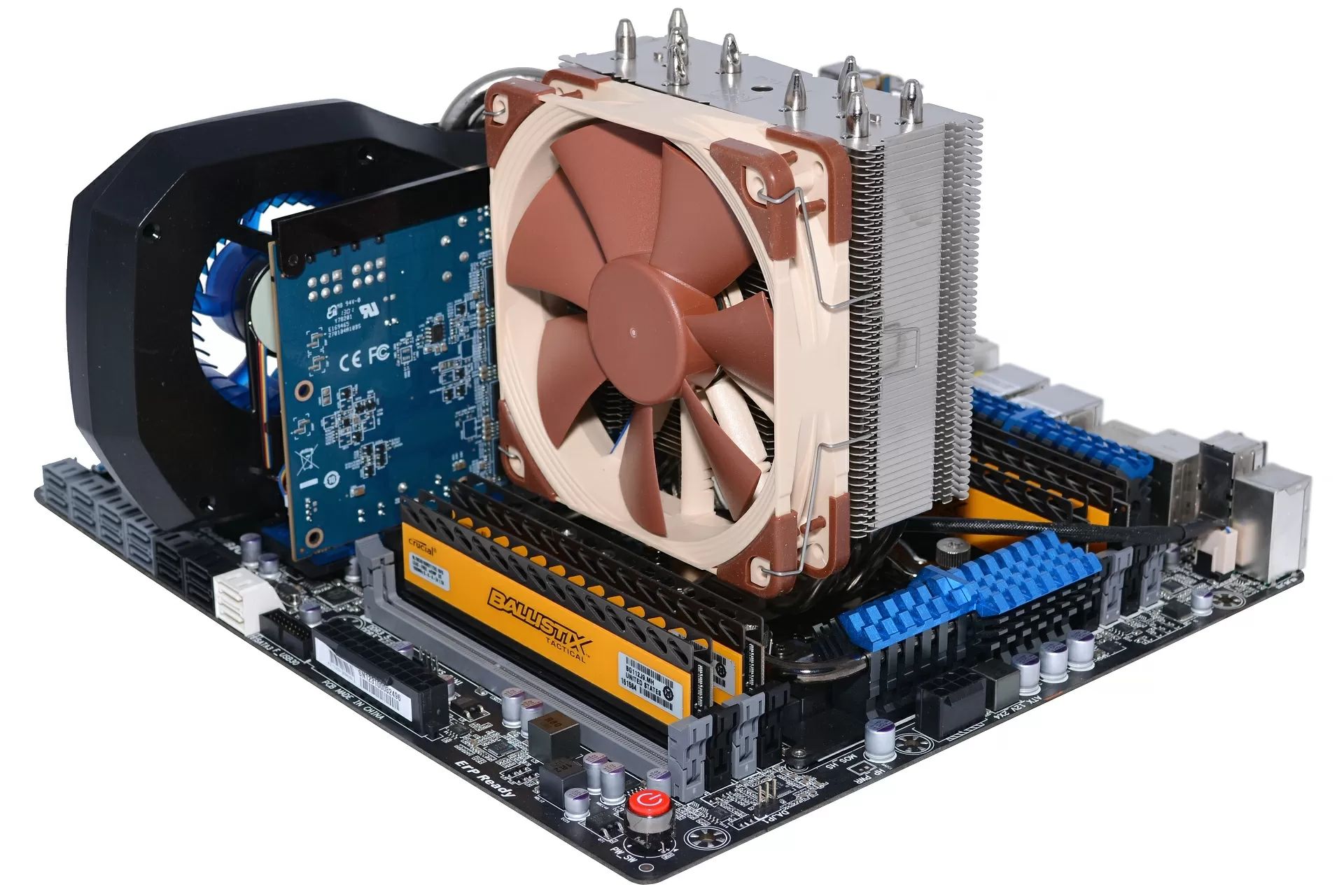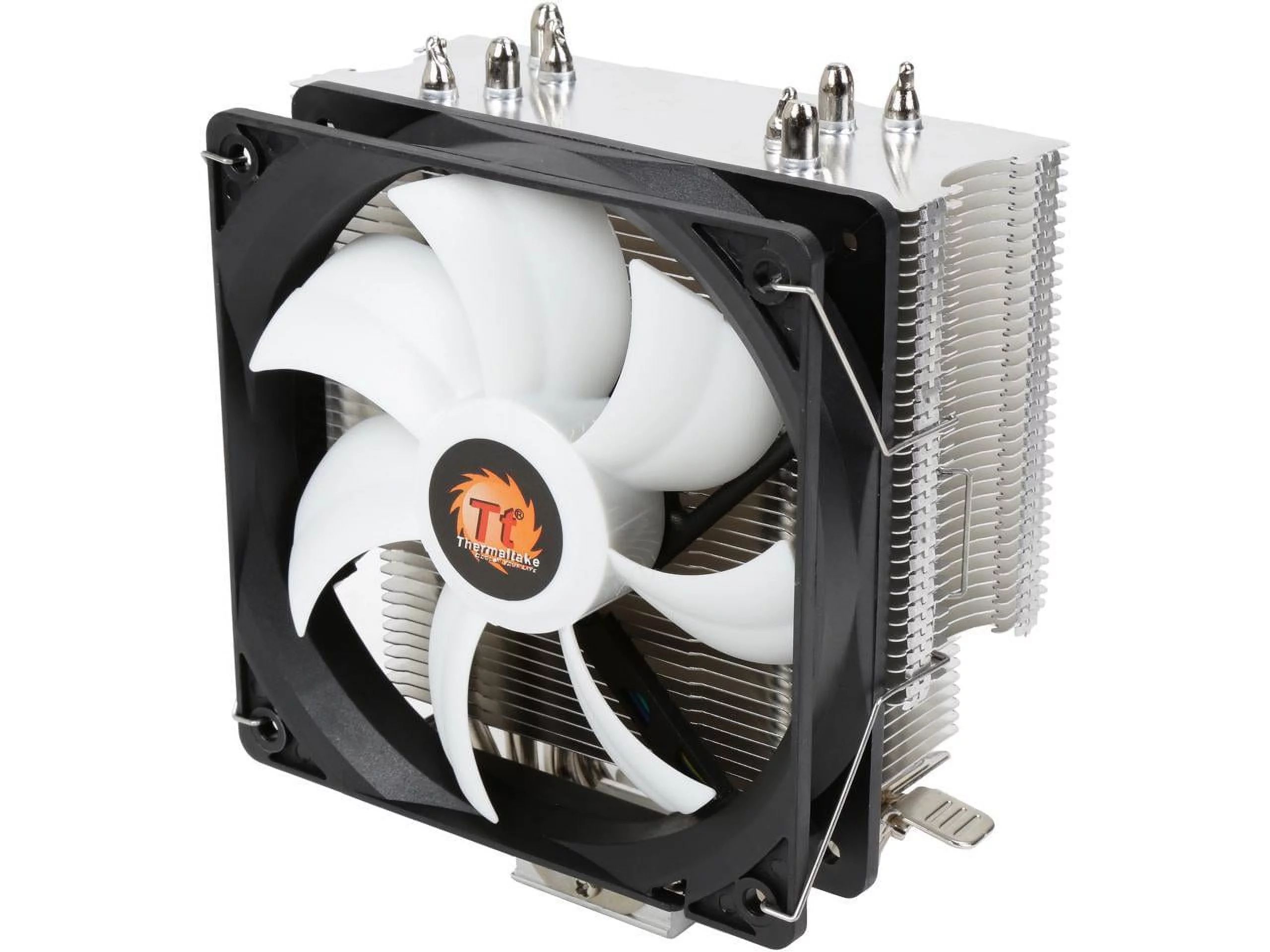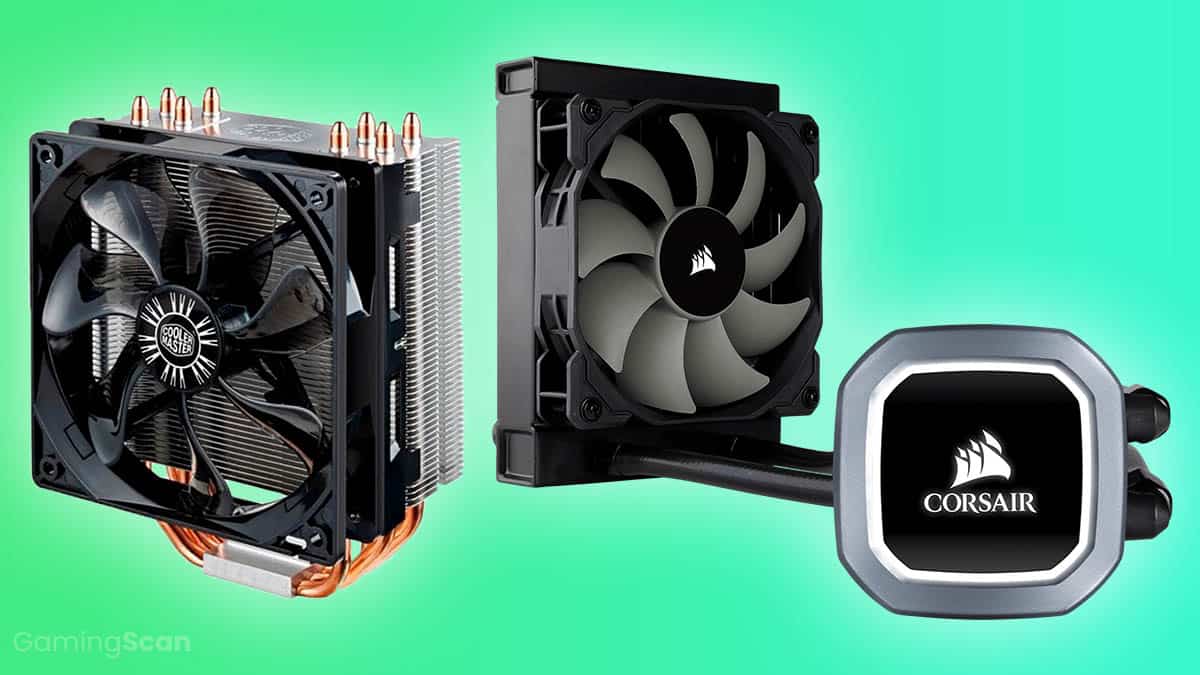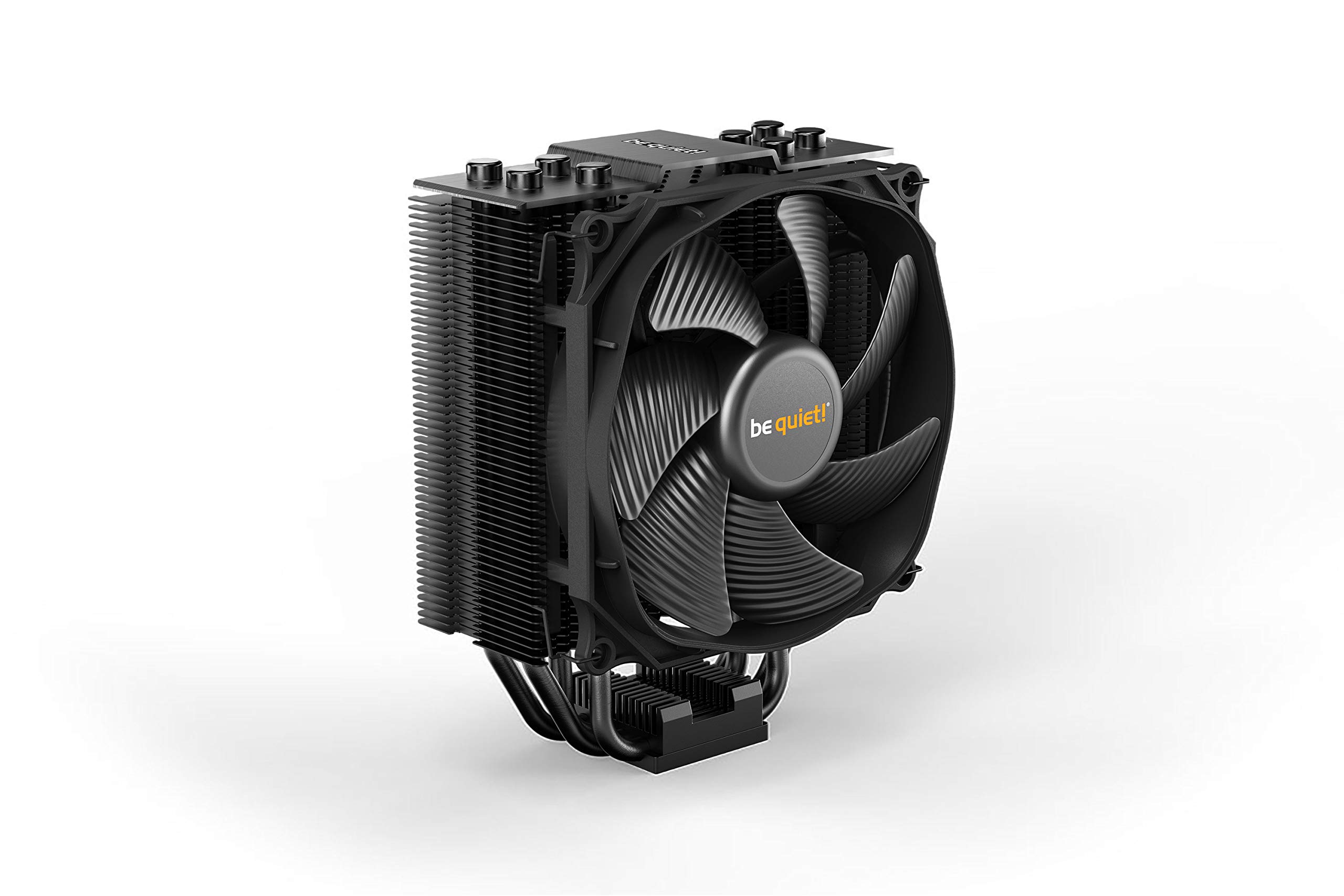Introduction
A CPU (Central Processing Unit) cooler is an essential component of a computer system that plays a crucial role in maintaining the optimal temperature of the CPU. The CPU generates a significant amount of heat during its operation, and if not properly cooled, it can lead to performance issues, system instability, and even damage to the CPU itself.
Choosing the right CPU cooler is particularly important when dealing with high-performance processors, such as the 91W CPUs. These processors are known to produce higher levels of heat compared to lower wattage CPUs, requiring more effective cooling solutions to ensure their efficient operation.
In this article, we will explore the different types of CPU coolers suitable for 91W CPUs. We will provide insights into both air coolers and liquid coolers and discuss the factors to consider when choosing the most appropriate option for your system. Furthermore, we will offer installation tips and troubleshoot common cooling issues that users may encounter.
Whether you are a computer enthusiast looking to build a high-performance gaming rig or a professional seeking a reliable workstation, understanding the importance of CPU cooling and choosing the right CPU cooler for your 91W CPU can significantly contribute to the overall performance, longevity, and reliability of your system.
So, let’s dive into the world of CPU cooling and discover the best cooling solutions for your 91W CPU!
What is a CPU Cooler?
A CPU cooler, also known as a heatsink and fan (HSF) or simply as a cooler, is a device designed to dissipate the heat generated by the CPU. It consists of two main components: the heatsink and the fan.
The heatsink is a metal block usually made of aluminum or copper with fins or ridges that increase its surface area. This larger surface area allows for better heat transfer from the CPU to the surrounding air. The fan, also known as the cooler fan, is attached to the heatsink and helps to blow air over the fins, facilitating the cooling process.
When the CPU is in operation, it generates heat as the electrical signals pass through its transistors. This heat needs to be removed efficiently to prevent thermal throttling, which can negatively impact performance and potentially damage the CPU. The CPU cooler’s primary function is to absorb this heat from the CPU and dissipate it into the surrounding air, ensuring the CPU operates at its optimal temperature range.
Modern CPU coolers come in various shapes and sizes. Some are designed for low-power CPUs and utilize passive cooling, relying solely on the heatsink’s design and material to disperse the heat. Others, particularly those intended for high-performance CPUs like the 91W CPUs, incorporate fans to provide active cooling, increasing the airflow and enhancing heat dissipation.
It’s important to note that not all CPUs require the same level of cooling. The cooling requirements depend on factors such as the CPU’s power consumption, clock speed, and the tasks it is expected to perform. CPUs with higher power consumption, such as the 91W CPUs, demand more robust cooling solutions to prevent overheating and maintain stable operation.
Now that we have a basic understanding of what a CPU cooler is and its purpose, let’s explore the importance of CPU cooling and its role in keeping our 91W CPUs running smoothly and efficiently.
The Importance of CPU Cooling
CPU cooling is a critical aspect of maintaining the proper functioning and longevity of your computer system, especially when dealing with high-performance processors like the 91W CPUs. Let’s take a closer look at why CPU cooling is so important:
1. Temperature Regulation: CPUs generate a significant amount of heat during their operation. Without efficient cooling, the temperature of the CPU can rise rapidly, leading to thermal throttling. Thermal throttling occurs when the CPU reduces its clock speed to lower the heat output, resulting in degraded performance and sluggish system responsiveness.
2. Optimal Performance: Excessive heat can hinder the performance of the CPU. Overheating not only leads to decreased clock speeds through thermal throttling, but it can also cause system instability and unexpected shutdowns. By maintaining the CPU’s temperature within the recommended range, you can ensure consistent and reliable performance.
3. System Longevity: Overheating can have a detrimental impact on the lifespan of your CPU. Prolonged exposure to high temperatures can cause the internal components of the CPU to degrade faster, shortening its overall lifespan. Proper cooling helps to mitigate this risk and can significantly increase the longevity of your 91W CPU.
4. Preventing Damage: Extreme heat can permanently damage the CPU, resulting in irreversible failures and the need for costly replacements. Investing in a reliable CPU cooler helps to dissipate heat efficiently and safeguard your 91W CPU from potential damage caused by overheating.
5. Enhanced System Stability: By maintaining the CPU at optimal temperatures, you can improve overall system stability. Stable temperatures reduce the likelihood of crashes, freezes, and other system issues that can be attributed to thermal problems.
6. Noise Reduction: While high-performance CPUs require effective cooling, it’s essential to strike a balance between cooling efficiency and noise levels. Modern CPU coolers are designed to provide excellent heat dissipation while minimizing fan noise, ensuring a quieter computing experience.
In summary, the importance of CPU cooling cannot be overstated, especially when dealing with 91W CPUs. Proper cooling ensures temperature regulation, optimal performance, system longevity, prevention of damage, enhanced stability, and reduced noise levels. By choosing the right CPU cooler and effectively managing the CPU’s temperature, you can unlock the full potential of your 91W CPU and enjoy a reliable and responsive computing experience.
Understanding the 91W CPU
The term “91W CPU” refers to a central processing unit with a thermal design power (TDP) of 91 watts. TDP is a measure of the maximum amount of heat that a CPU can generate under typical operating conditions. CPUs with higher TDP values, such as the 91W CPUs, require more robust cooling solutions to maintain optimal temperatures and prevent overheating.
When choosing a CPU cooler for a 91W CPU, it’s important to consider the power consumption and heat output of the processor. The higher the TDP, the more heat the CPU generates, necessitating a more effective cooling solution to dissipate that heat effectively. Without adequate cooling, the CPU’s performance can suffer, and the risk of thermal throttling and damage to the CPU increases.
91W CPUs are often found in high-performance desktop computers designed for demanding tasks such as gaming, content creation, and professional applications. These CPUs typically have a higher clock speed and more cores than lower wattage processors, allowing for faster and more efficient processing power. However, this increased performance comes at the expense of generating more heat.
One popular example of a 91W CPU is the Intel Core i7-9700K, which boasts eight cores and a base clock speed of 3.6 GHz. CPUs like this one are well-suited for tasks that require significant processing power, but they also require effective cooling to maintain performance and stability.
To accommodate the cooling needs of a 91W CPU, it is recommended to choose a CPU cooler specifically designed for high TDP processors. These coolers typically have larger heatsinks, more heat pipes, and powerful fans to ensure efficient heat dissipation. Air coolers and liquid coolers are both viable options, with each having its advantages and considerations.
It’s worth noting that the cooling requirements for a 91W CPU might vary depending on factors such as the computer’s airflow, overall system configuration, and the intended usage. If you are planning to overclock your 91W CPU, additional cooling measures may be necessary to handle the increased heat output.
By understanding the unique characteristics of a 91W CPU, you can make informed decisions when choosing a CPU cooler that can effectively manage the heat generated by the processor. Proper cooling is crucial to ensure the longevity, performance, and stability of your 91W CPU-based system.
Air Coolers for 91W CPUs
Air coolers are a popular and cost-effective cooling solution for 91W CPUs and are widely used by PC builders and enthusiasts alike. These coolers rely on a combination of heatsinks and fans to dissipate heat away from the CPU. Let’s explore the benefits and considerations of using air coolers for 91W CPUs:
Benefits of Air Coolers:
1. Cost-Effective: Air coolers are generally more affordable compared to liquid coolers, making them an attractive option for users on a budget or those looking for a reliable cooling solution without breaking the bank.
2. Easy Installation: Air coolers are relatively easy to install, requiring only a few screws to attach the heatsink to the CPU socket. Most air coolers come with clear instructions, making the installation process hassle-free, even for those with limited technical expertise.
3. Low Maintenance: Air coolers, compared to liquid coolers, are low maintenance. They don’t require regular refilling or monitoring of fluid levels, making them more convenient for long-term use.
4. Wide Compatibility: Air coolers are compatible with various CPU socket types and can fit in most PC cases without issues. This versatility allows users to choose from a wide range of air coolers that suit their specific CPU and case requirements.
Considerations for Air Coolers:
1. Size and Clearance: Air coolers tend to have larger physical dimensions compared to liquid coolers. It is essential to ensure that the selected air cooler can fit within your PC case and provide adequate clearance for other components such as RAM modules and VRM heatsinks.
2. Cooling Performance: While air coolers can effectively cool 91W CPUs, their cooling performance is generally not as efficient as liquid coolers. However, high-quality air coolers with large heatsinks and powerful fans can still provide excellent cooling capabilities for most users.
3. Noise Levels: The fan(s) included in the air cooler can generate noise as they spin at higher speeds to dissipate heat. It is advisable to choose an air cooler with a fan that offers a good balance between cooling performance and noise levels, especially if you prioritize a quieter computing environment.
4. Overclocking Potential: If you plan to overclock your 91W CPU for additional performance, air coolers may have limitations due to their cooling efficiency. While some high-end air coolers can handle moderate overclocking, liquid coolers are generally better suited for extreme overclocking scenarios.
Air coolers offer a reliable and cost-effective cooling solution for 91W CPUs. They are easy to install, low maintenance, and compatible with a wide range of cases and CPU sockets. However, considerations such as size, cooling performance, noise levels, and overclocking potential should be taken into account when selecting an air cooler for your 91W CPU-based system.
Liquid Coolers for 91W CPUs
Liquid coolers, also known as all-in-one (AIO) coolers, provide an alternative cooling solution for 91W CPUs. These coolers utilize a combination of a liquid coolant, radiator, pump, and fans to effectively dissipate heat from the CPU. Let’s explore the benefits and considerations of using liquid coolers for 91W CPUs:
Benefits of Liquid Coolers:
1. Enhanced Cooling Performance: Liquid coolers are known for their superior cooling capabilities. The liquid coolant absorbs heat from the CPU and transfers it to the radiator, where it is then dissipated by the fans. This efficient heat transfer mechanism allows for better cooling performance, especially during intense computational tasks or overclocking scenarios.
2. Compact Design: Liquid coolers offer a compact design compared to traditional air coolers, as the radiator and fans can be mounted in various orientations within the case. This flexibility makes liquid coolers suitable for small form factor builds or cases with limited clearance.
3. Aesthetics and Customization: Liquid coolers often feature vibrant RGB lighting and customizable pump and fan designs, allowing users to create attractive and visually appealing PC builds. These aesthetic options can complement the overall look and theme of the system.
4. Noise Reduction: Liquid coolers tend to operate at lower noise levels compared to some high-performance air coolers. With the radiator and fans mounted away from the CPU socket, noise from the cooling system is minimized, resulting in quieter operation during normal usage.
Considerations for Liquid Coolers:
1. Higher Cost: Liquid coolers tend to be more expensive compared to air coolers, primarily due to their advanced cooling mechanisms and the use of liquid coolant. The additional cost may be a consideration for users on a tight budget.
2. Installation Complexity: Installing a liquid cooler requires more steps compared to air coolers. It involves mounting the radiator, connecting the tubes, and securing the CPU block. Users should carefully follow the manufacturer’s instructions to ensure proper installation and avoid any potential leaks or damage to the system.
3. Maintenance: While liquid coolers are generally more maintenance-free compared to custom water cooling systems, they still require periodic cleaning and monitoring to avoid any potential issues. The coolant levels should be checked, and dust accumulation on the radiator and fans should be cleaned regularly to ensure optimal performance.
4. Compatibility: Liquid coolers may have compatibility limitations based on case and CPU socket compatibility. It is important to ensure that the selected liquid cooler fits within your PC case and supports the CPU socket of your 91W CPU.
Liquid coolers offer superior cooling performance, compact design options, aesthetic customization, and lower noise levels compared to air coolers. However, they come at a higher cost, require more complex installation, involve maintenance considerations, and may have compatibility restrictions. These factors should be taken into account when deciding whether a liquid cooler is the right choice for your 91W CPU-based system.
Factors to Consider When Choosing a CPU Cooler
Choosing the right CPU cooler is crucial to ensure optimal cooling efficiency and performance for your 91W CPU. Several factors should be taken into consideration when selecting a CPU cooler. Let’s explore these factors:
1. Cooling Performance: The primary purpose of a CPU cooler is to dissipate heat effectively. Consider the cooling performance of the cooler, especially for high TDP processors like the 91W CPUs. Look for coolers with larger heatsinks, multiple heat pipes, and high-quality fans to ensure efficient heat dissipation.
2. TDP Compatibility: Verify that the CPU cooler you choose is capable of handling the thermal design power (TDP) of your 91W CPU. The TDP rating specified by the CPU manufacturer indicates the maximum amount of heat the CPU can generate. Ensure that the cooler’s TDP rating matches or exceeds that of your CPU to ensure effective cooling.
3. Form Factor and Case Dimensions: Consider the size and compatibility of the CPU cooler with your PC case. Check the dimensions and clearance requirements of the cooler to ensure it can fit within your case without interfering with other components. Consider the height, width, and length of both the cooler and your case.
4. Air Flow and Noise Levels: Evaluate the airflow and noise levels of the CPU cooler. Look for coolers with efficient fans that can provide adequate airflow while keeping noise levels at an acceptable level. Consider the fan speed, number of fans, and noise ratings specified by the manufacturer.
5. Overclocking Capability: If you plan to overclock your 91W CPU for additional performance, choose a cooler that can handle the increased heat output. Opt for coolers designed for high-performance CPUs and are known to handle overclocking effectively. Look for coolers with robust heat dissipation capabilities and efficient cooling technologies.
6. Budget: Consider your budget when selecting a CPU cooler. Air coolers are generally more affordable, while liquid coolers tend to be more expensive. Determine a budget range and explore options that provide a good balance between price and performance.
7. Brand and Reputation: Research and consider reputable brands known for their quality cooling solutions. Read reviews and ratings from other users to gauge the performance, reliability, and customer support offered by different brands. Trustworthy and established brands often provide better overall experiences and after-sales support.
8. Compatibility with CPU Socket: Ensure that the CPU cooler is compatible with the socket type of your 91W CPU. Different CPUs utilize different mounting mechanisms and socket types, such as Intel LGA or AMD AM4. Check the compatibility information provided by the cooler manufacturer to ensure a proper fit.
By considering these factors, you can choose a CPU cooler that meets the specific cooling requirements of your 91W CPU. Take into account cooling performance, TDP compatibility, form factor, airflow and noise levels, overclocking capability, budget, brand reputation, and compatibility with the CPU socket. Selecting the right CPU cooler will help maintain optimum temperatures, enhance performance, and ensure the longevity of your system.
Installation Tips for CPU Coolers
Proper installation of a CPU cooler is crucial to ensure effective cooling and optimal performance for your 91W CPU. Here are some helpful tips to guide you through the installation process:
1. Read the Instructions: Before starting the installation, carefully read the instructions provided by the CPU cooler manufacturer. Each cooler may have specific installation steps and requirements that you need to follow for proper installation.
2. Gather the Necessary Tools: Make sure you have all the necessary tools and components ready before starting the installation. This may include a screwdriver, thermal paste, and any additional mounting brackets or accessories provided with the cooler.
3. Clean the CPU Surface: Before installing the cooler, ensure that the surface of the CPU is clean and free from any debris or old thermal paste residue. Use isopropyl alcohol and a lint-free cloth to gently clean the CPU surface and ensure proper thermal conductivity.
4. Apply Thermal Paste: Apply a small amount of thermal paste to the center of the CPU surface. Avoid using too much paste, as it can lead to poor heat transfer. A pea-sized dot or a thin line across the middle of the CPU is sufficient.
5. Align the Cooler: Carefully align the CPU cooler over the CPU, ensuring that it matches the mounting holes or brackets on the motherboard. Gently lower the cooler onto the CPU, making sure the thermal paste spreads evenly.
6. Secure the Cooler: Follow the manufacturer’s instructions to secure the cooler in place. This may involve tightening screws or attaching mounting brackets. Be cautious not to overtighten the screws, as it can damage the CPU or the cooler.
7. Connect the Fan(s): If the cooler has a fan or multiple fans, connect them to the appropriate fan headers on the motherboard. Ensure that the fans are oriented correctly for optimal airflow, following the manufacturer’s recommendations.
8. Cable Management: Organize and route the cables neatly to avoid obstructing the airflow and to maintain a clean and tidy appearance. This helps with better airflow and prevents any potential interference with other components.
9. Test the System: Once the cooler is installed, power on your computer and monitor the CPU temperatures using software tools or the BIOS. Ensure that the temperatures remain within acceptable ranges and that the fan(s) are operating correctly.
10. Monitor and Maintain: Regularly monitor the temperatures of your CPU after installation to ensure the cooler is functioning properly. Also, keep an eye on any software or firmware updates related to your cooler to stay up-to-date with performance optimizations and bug fixes.
Following these installation tips will help ensure a successful and efficient installation of your CPU cooler. Proper installation is vital to maintain optimal temperatures, prevent overheating, and extend the lifespan of your 91W CPU.
Troubleshooting Common Cooling Issues
Despite proper installation and maintenance, you may encounter cooling issues with your CPU cooler. Here are some common problems that can arise and troubleshooting tips to resolve them:
1. High CPU Temperatures: If you notice unusually high CPU temperatures, it could indicate inadequate cooling. Check if the CPU cooler is properly mounted and tightened. Ensure that the fan(s) are working correctly and that the heatsink is clean from dust and debris, as these can impede airflow.
2. Noisy Fan(s): Excessively loud fan noise can be bothersome and may indicate a problem with the cooling system. Make sure the fan(s) are securely attached and not hitting any cables or components inside the case. Cleaning the fan blades can also help alleviate noise caused by dust buildup.
3. Overheating Shutdowns: If your system is shutting down unexpectedly due to overheating, check that there is proper contact between the CPU and the cooler. Ensure that sufficient thermal paste is applied, and the cooler is adequately tightened. Consider improving the case airflow by adding more case fans or adjusting fan speeds.
4. Uneven Thermal Paste Spread: When applying thermal paste, it is crucial to achieve an even spread to ensure efficient heat transfer. If you notice gaps or uneven distribution, remove the cooler, clean the old thermal paste, reapply a fresh layer, and reinstall the cooler. This will help improve heat conductivity.
5. Clogged or Dusty Heatsink: Over time, the heatsink can accumulate dust and debris, affecting its ability to dissipate heat. Regularly clean the heatsink using compressed air or a soft brush to remove any buildup. Clearing the heatsink will improve airflow and enhance cooling performance.
6. Inadequate Airflow: Insufficient airflow within the case can contribute to higher CPU temperatures. Ensure that all airflow vents, including the CPU cooler’s fan(s), are unobstructed. Consider adding case fans or rearranging existing fans to optimize airflow and maintain cooler temperatures.
7. Insufficient Cooler TDP: If your CPU cooler’s thermal design power (TDP) rating is lower than the TDP of your CPU, it may struggle to maintain adequate cooling. In this case, consider upgrading to a cooler with a higher TDP rating to better match the heat output of your 91W CPU.
8. Check the Fan Speed: If your CPU cooler has adjustable fan speeds, confirm that the fan(s) are operating at the appropriate speed. If they are set too low, the cooling performance may be compromised. Adjust the fan speeds in the BIOS or use third-party software to maintain the desired balance between cooling and noise levels.
9. Processor Compatibility: Double-check that the CPU cooler you are using is compatible with your specific CPU model. Some coolers may require additional mounting brackets or may not support certain CPU socket types. Make sure the cooler and CPU are compatible to ensure proper installation and cooling performance.
10. Seek Professional Help: If you have exhausted all troubleshooting options and are still experiencing cooling issues, consider seeking assistance from a professional computer technician. They can conduct a thorough assessment of your cooling system and provide expert guidance or recommend alternative cooling solutions if needed.
By troubleshooting these common cooling issues, you can identify and address any problems with your CPU cooler. Regular maintenance, effective airflow management, and monitoring temperatures can help ensure proper cooling performance and the longevity of your 91W CPU.
Conclusion
Choosing the right CPU cooler for your 91W processor is vital to ensure optimal cooling performance and maintain the longevity of your system. Whether you opt for an air cooler or a liquid cooler, consider factors such as cooling performance, TDP compatibility, form factor, airflow, noise levels, overclocking potential, and budget when making your decision.
Air coolers offer a cost-effective solution with easy installation and wide compatibility, while liquid coolers provide superior cooling performance and aesthetic customization options. Remember to consider factors such as case dimensions, noise levels, installation complexity, and maintenance requirements when choosing a CPU cooler that best fits your needs.
When installing your CPU cooler, follow the manufacturer’s instructions carefully, ensuring proper CPU surface cleaning, thermal paste application, and secure mounting. Cable management and regular monitoring of CPU temperatures are also essential for optimal cooling performance.
If you encounter any cooling issues, such as high CPU temperatures, noise problems, or inadequate airflow, refer to troubleshooting tips such as checking cooler installation, cleaning the heatsink, and ensuring proper thermal paste spread. Seek professional help if necessary.
By selecting the right CPU cooler, installing it correctly, and troubleshooting any issues that arise, you can ensure that your 91W CPU operates within optimal temperature ranges, maximizing performance and prolonging the lifespan of your system.









